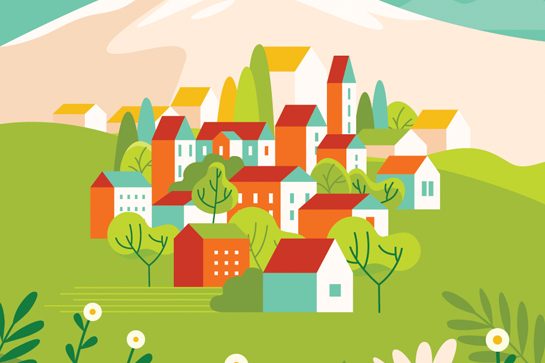In the last few years many of the health and human services organizations that serve homeless populations have shifted from a facility-based focus to a more client-centered focus. This change has created some challenges, such as the difficulty of focusing on each individual while working with finite resources, but it has also created an opportunity. By focusing on individuals and advocates can discover the root causes of homelessness and then develop innovative solutions. As just one example, a non-profit in Texas is trying to solve chronic homelessness by addressing the social determinant that they consider to be the most foundational; access to a social support structure.
Creating a Village of Support
Mobile Loaves & Fishes (MLF) of Austin, Texas was founded more than twenty years ago with the goal of providing hot meals to individuals experiencing homelessness. After years of serving individuals who have been living on the streets, or in other unsheltered locations, the volunteers and founders of MLF began to see common threads woven through many of their stories. The recurring theme they heard time and time again was that most of the recipients of the MLF food truck program had suffered a loss of family, or other community support resource, prior to becoming homeless.
In response to their realization, and as a step beyond traditional “Housing First” programs, MLF built the Community First! Village in order to provide both affordable housing and the opportunity to be a member of a healthy community. The village itself is modeled after RV parks that can be found in many places across the United States and provides private living quarters through a collection of RVs, sturdy canvas tents, and micro-houses. Community features of the village include bathrooms, laundry facilities, communal cooking and dining areas, study rooms, and even an outdoor movie theater. Community First also runs a series of programs that promote both social interaction and the development of skills that can lead to better employment prospects. They even provide short term employment opportunities, such as running concessions at local events, to bolster both skills and personal satisfaction. The founders of Community First hope that by creating a supportive community, which also promotes job training, they can provide the social support needed to assist previously homeless individuals as they find stability and rebuild their lives.
Community Focused Supportive Housing
Community First! Village is not the only health and human services provider that believes that social involvement is an essential piece to the puzzle of rebuilding lives. New York City’s Capitol Hall supportive housing facility has existed for decades, but has only recently completed a massive renovation that comes with a shift in focus. The remodeling project not only upgraded bathroom facilities and improved the privacy of living spaces, it added a number of spaces that are designed to encourage social involvement among the residents. Capitol Hall’s facility now includes two communal kitchens, a library, a dining room, and a skylighted community room where a number of organized activities are held.
In Oakland, California, the historic California Hotel has recently been renovated to create 135 apartments for extremely low-income and previously homeless individuals. In addition to providing safe and stable housing, the former hotel also boasts a computer lab, a community garden, an organic greenhouse that also houses chickens, an art gallery, and a number of facilities where ongoing classes and community activities are held. The hotel’s former ballroom has even been converted into a large community room. The facility has the goal of not only providing stable housing, but also creating the opportunity for membership in a healthy, supportive neighborhood.
Access to a healthy support structure is just one of a myriad of social determinants that contribute to overcoming chronic homelessness. But each one of these determinants has something in common, they affect the everyday lives of real people who are experiencing homelessness. As human service providers and healthcare providers work together to focus on identifying the core needs of individuals, they can find real solutions and work towards breaking the cycle of chronic homelessness.
Blog Resources
https://austin.curbed.com/2017/11/10/16632268/tiny-home-village-austin-end-homeless-plan
https://www.huduser.gov/portal/pdredge/pdr-edge-inpractice-040317.html
https://www.huduser.gov/portal/pdredge/pdr_edge_inpractice_archives.html?page=1



